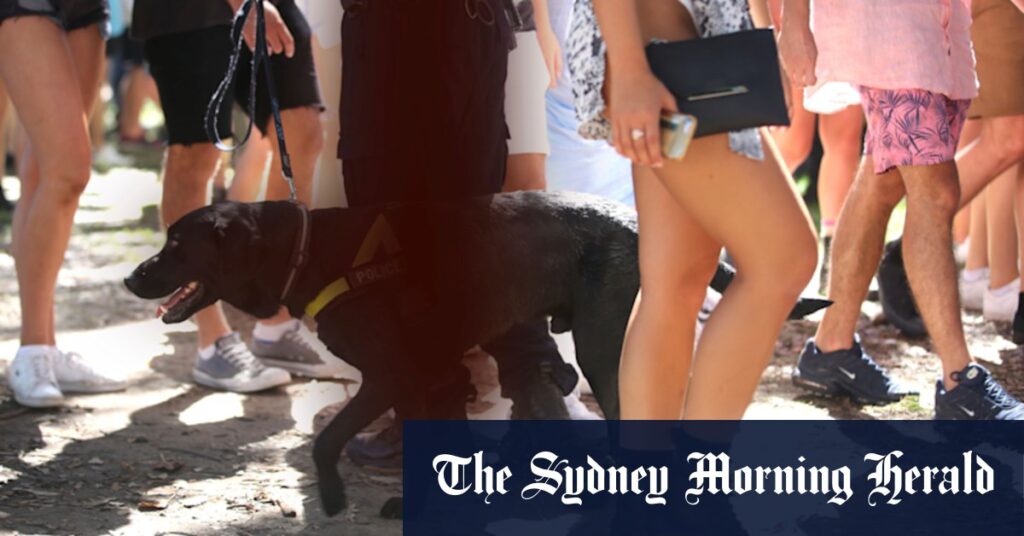For Raya Meredith, attending Splendour in the Grass in 2018 was supposed to be exciting and fun. Instead, it was “harrowing and traumatising” as a result of being strip-searched by police before she had even walked through the gates.
It was a 30-minute “frightening” ordeal. The then-27-year-old, after being approached by an officer with a sniffer dog, was taken to a makeshift cubicle at the North Byron park venue, where a female police officer told her to pull down her top, take off her shorts and underwear, remove a tampon and bend over. This is when a male police officer walked in without knocking. No drugs were found.
She became the lead plaintiff in 2022 in a 3000-member class action in the NSW Supreme Court. Led by Redfern Legal Centre and Slater and Gordon Lawyers, it challenges the lawfulness of police strip-searches at music festivals.
Class action: Slater and Gordon’s William Zerno and Redfern Legal Centre’s Sam Lee (right) hold a media conference outside the NSW Supreme Court after Tuesday’s judgment. Credit: Steven Siewert
In a landmark decision on Tuesday that paves the way for the NSW government to pay millions of dollars for unlawful strip-searches, Justice Dina Yehia awarded Meredith $93,000 in damages for assault, battery and false imprisonment, and aggravated damages. She will also receive exemplary, or punitive, damages, which have yet to be calculated.
The judge said there had been a “flagrant” disregard of Meredith’s rights and privacy and a “gross failure” to comply with the legal safeguards.
Loading
The NSW Law Enforcement (Powers and Responsibilities) Act (LEPRA) says a strip-search may be carried out when an officer “suspects on reasonable ground that the strip-search is necessary for the purposes of the search and … the seriousness and urgency of the circumstances” make it necessary. Yehia found those preconditions were not satisfied in relation to Meredith.
Slater and Gordon’s William Zerno, outside court on Tuesday, said this was “the largest class action against any police force in Australian history” and urged the government to “bring this shameful chapter to a close” by negotiating a settlement for the remaining plaintiffs.
This may be a wise move as this judgment has far-reaching implications affecting potentially thousands of strip-searches between 2016 and 2019 where lawyers allege NSW Police developed a “practice or pattern” in which conducting strip-searches of music festival attendees was a “matter of routine” and without lawful justification. In a surprise development this year, the state of NSW admitted the strip-search of Meredith was unlawful but denied the broader allegations of unlawful conduct.
Read the full article here


